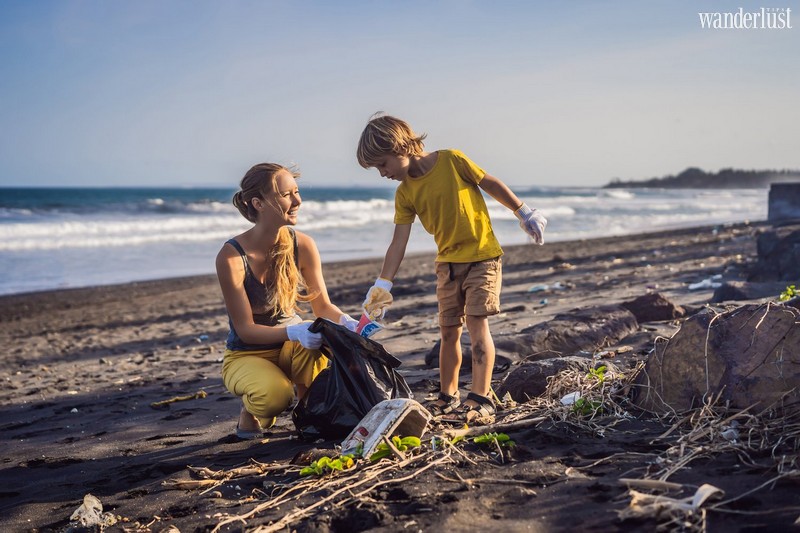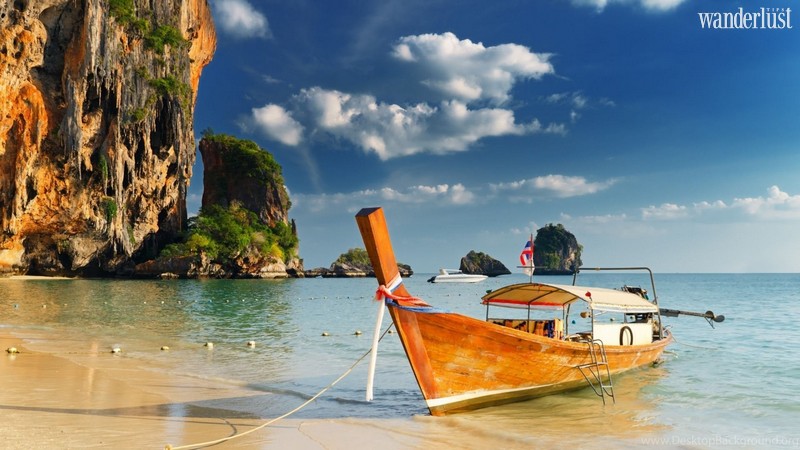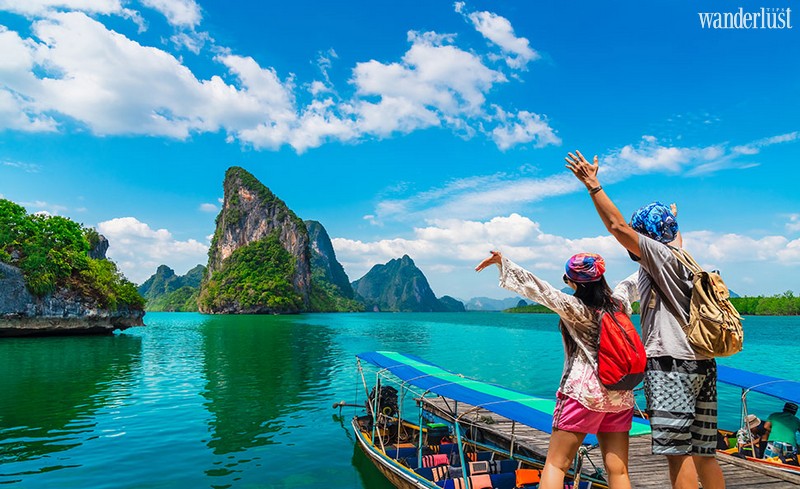Responsible tourism takes the effort of a whole community. Tourism has the responsibility not only to protect the environment but also to maintain and preserve indigenous culture.
[rpi]
However, not all travellers are ready to behave environmentally sound and the knowledge is still limited. Here are some tips from Wanderlust Tips to help you have a destination-friendly holiday.

Before leaving
Choosing destinations and transports are the first two things that you have to consider seriously. Air travel is the most powerful way of carbon emissions. So it is recommended to avoid destinations that require getting there by the plane. In case travelling by plane is a must, remember to prioritise flights with fewer transit times or changing airplane times because carbon dioxide is generated the most in the process of take off and landing. You can measure your carbon footprint on
http://www.nature.org/greenliving/carboncalculator/index.htm?ref=www.nature.org.
If you buy a tour, ask your service provider if they have a commitment to responsible tourism.
If you are looking for a hotel to stay in, ask them simple questions to find out if they have a balanced development strategy with a mission to protect the environment.

The 10 simplest questions for hotels are:
- Is this hotel a member of the Green Hotels Association?
- Can visitors choose not to wash towels and bed linen daily?
- Does the hotel employ local workers?
- How does the hotel handle waste? Is it effective? Do they recycle and compost?
- What is the hotel’s business plan for saving energy (electricity, water)? Does the hotel use solar energy to heat water and recycle water, which is not completely dirty, use slow-running showers or save toilet water?
- Is your produce from local sources?
- Does the hotel use 100% cotton? As using fabric from industrial materials is not sustainable.
- Does the hotel try to cultivate on its premises?
- Does the hotel’s system save energy? Are electric lights used in unnecessary areas or at suitable times?
- Does the hotel provide guidance for employees and guests to participate in the environmental protection program?
Keeping your bag as light as possible, leaving everything unnecessary at home. Remember, the heavier the load, the more fuel the plane, train, boat, car and other transportation means burn. At the same time, it is recommended to bring reusable products such as tote bags and water bottles.
Choose to be a traveller instead of a tourist. People have pointed out the many differences between these two concepts, the most fundamental of which is that a traveller will place himself or herself in the flow of indigenous cultures, lifestyles and activities of local people rather than standing separately. For a traveller, travel is to explore a different culture, habits and lifestyles, not just for leisure or superficial visiting.
Turn off the fuel consumption equipment before leaving home.
On the itinerary

Use of public transportation. It is best to use buses to travel because bus routes always connect the main attractions. If there is no bus, consider walking or cycling before using other motorised vehicles. If you have to drive, avoid stopping the vehicles for a long time when the engine is still on, avoid stopping or starting suddenly, it is recommended to carry lightweight luggage and travel in groups to take advantage of a vehicle for many people.
Hire local guides. It’s a way for indigenous people to get involved in tourism, helping them to increase their income from tourism, and a great way to get to know the local people. Local guides will help you learn more about the culture, customs and traditional values at your destination. You should have your tour guide tell you what you can do and what programs you should participate in to protect the environment with indigenous peoples.
Follow a green lifestyle in the hotel: turn off the power when leaving the room, do not pour the water for shower from too high a position, and keep the towels clean so as not to wash daily.
Buy local products and food. Be sure to ask whether the products are illegally traded, or are in danger to avoid buying or selling these products. And remember to use recyclable or reusable containers.
Adhering to indigenous culture means that you need to know the culture of your destination, and participate in activities such as traditional festivals, holy places of worship, rituals, and local customs and understand the profound roots of the formation of these customs, practices, or beliefs.
Give back

Make up for the carbon emissions you caused when you made the journey, such as picking up rubbish, recycling garbage or planting trees. (This can be done before and after the journey, at any convenient time).
Introduce good services, saving fuel travel for visitors who are planning to travel.
Understand responsible travel
Responsible travel / tourism is a concept that emerged in 2002 in the Cape Town Declaration that was later recognised and widely used. Responsible tourism is a very broad concept and not limited to the impact of tourism on the environment.
Commonly speaking, responsible tourism is about “making better places for people to live in and better places for people to visit.” Responsible Tourism requires that operators, hoteliers, governments, local people and tourists take responsibility and take action to make tourism more sustainable.
Responsible tourism as defined in the 2002 Cape Town Declaration:
- Minimises negative economic, environmental, and social impacts;
- Generates greater economic benefits for local people and enhances the well-being of host communities, improves working conditions and access to the industry;
- Involves local people in decisions that affect their lives and life chances;
- Makes positive contributions to the conservation of natural and cultural heritage, to the maintenance of the world’s diversity;
- Provides more enjoyable experiences for tourists through more meaningful connections with local people, and a greater understanding of local cultural, social and environmental issues;
- Provides access for physically challenged people; and
- Is culturally sensitive, engenders respect between tourists and hosts, and builds local pride and confidence.

The declaration concludes with a commitment ‘to work with others to take responsibility for achieving the economic, social and environmental components of responsible and sustainable tourism.
Wanderlust Tips

